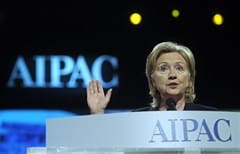The pro-Israel lobby is widely thought to be powerful on Capitol Hill, and it has been. But by Humphrey Neill’s art of contrary thinking, we would do well to ponder the opposite possibility: that its influence bubble will deflate.
If the negotiations with the Iranians work out toward detente, the pro-Israel lobby will have met with a defeat. If Israel were unilaterally to aggress against Iran, the pro-Israel lobby will also not look good. The more that Americans see their own security and interests being subordinated to those of Israel, the worse the pro-Israel lobby looks. The more that members of Congress are pressured by the pro-Israel lobby, the more obvious its tactics become and the more resistance and resentment the lobby triggers. The more that “wolf” is cried, while Iran acts with restraint and decorum while absorbing various acts of sabotage, the more that the pro-Israel lobby looks out of touch.
The very fact of negotiations going on now is a signal that the bubble is deflating. If the activities of the neocon faction and the pro-war faction should prove successful in jettisoning the talks and raising tensions again, there will be a backlash. In a war-weary America, any new war encouraged by the lobby or aggressive talk from it are likely to run into a negative assessment of the lobby’s rationality. As long as there is no direct threat against Jewish people in Israel, amounting to an extermination threat, there will be a tendency for the bubble to deflate.
There are other wild cards that may act to deflate the lobby’s influence, such as an increased understanding of the motives of all the pro-war parties involved, including those in Israel causing territorial enlargement, the neocons, the pro-war interests, and those with strange religious ideas.
It seems that no matter what happens, the high point of the pro-Israel lobby has been reached and passed.

